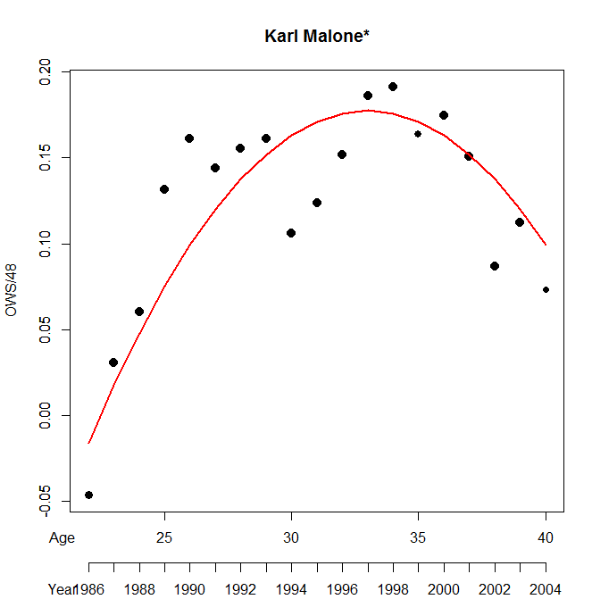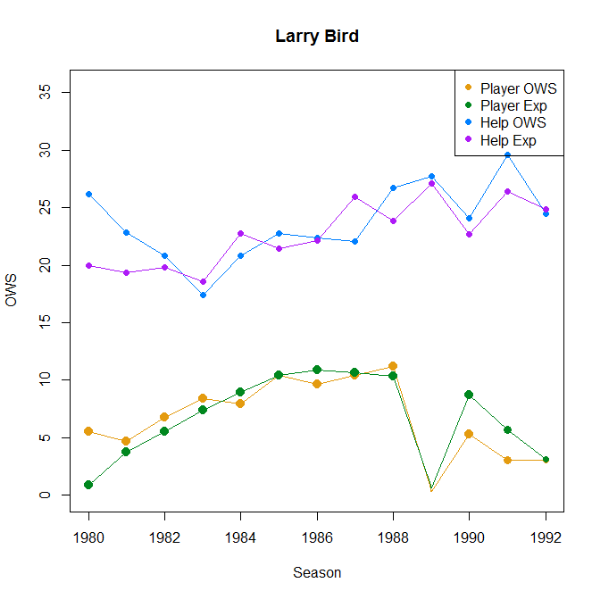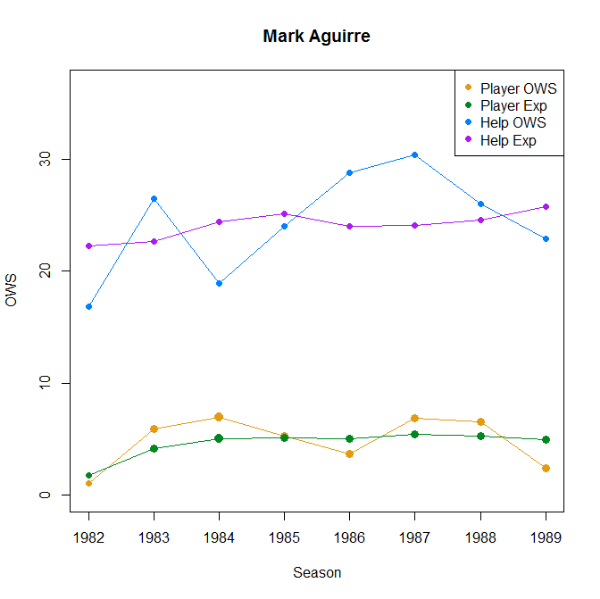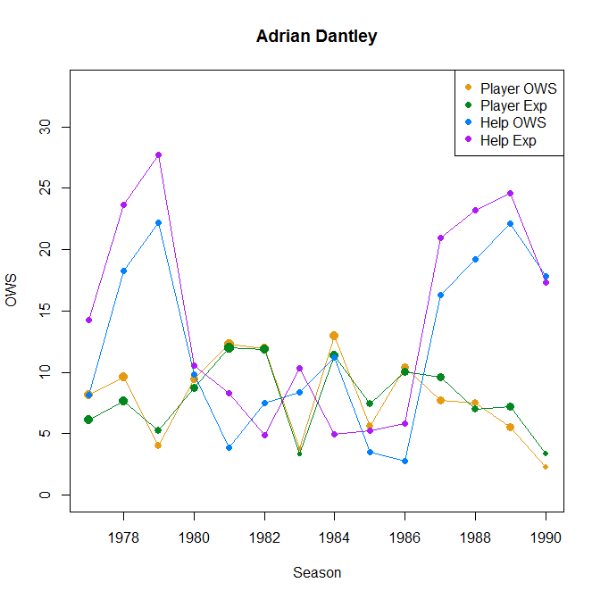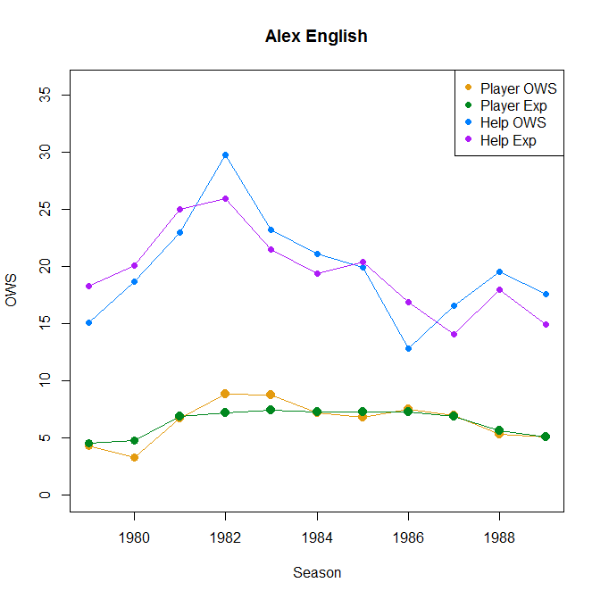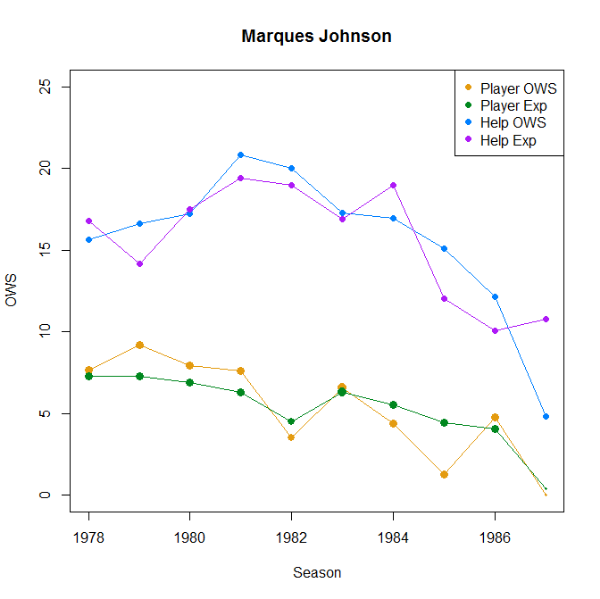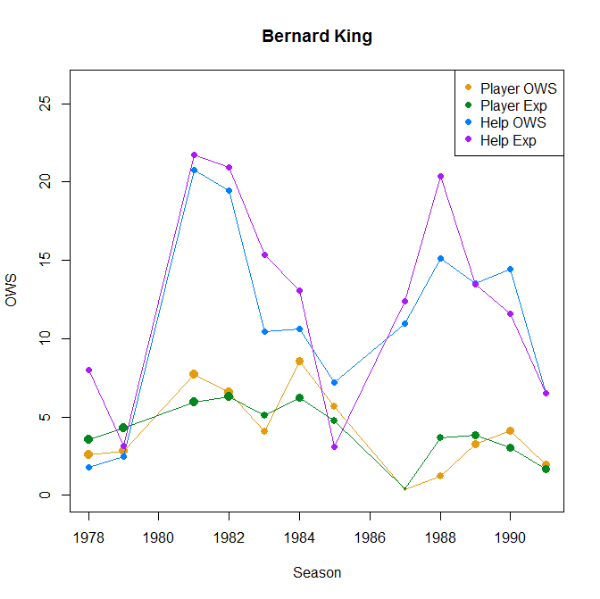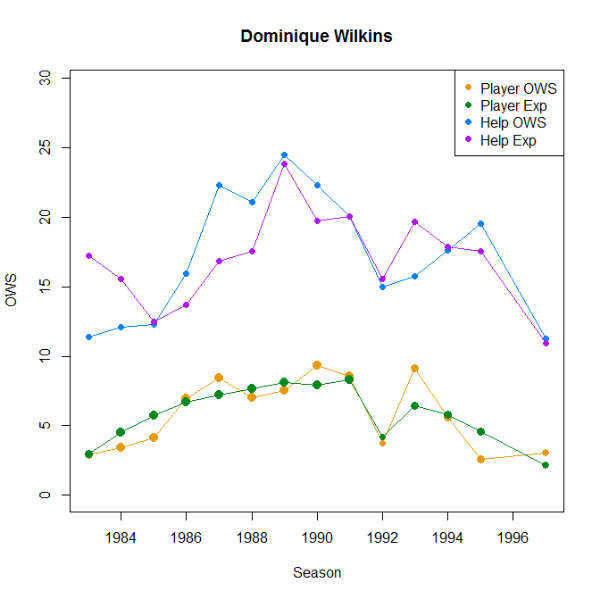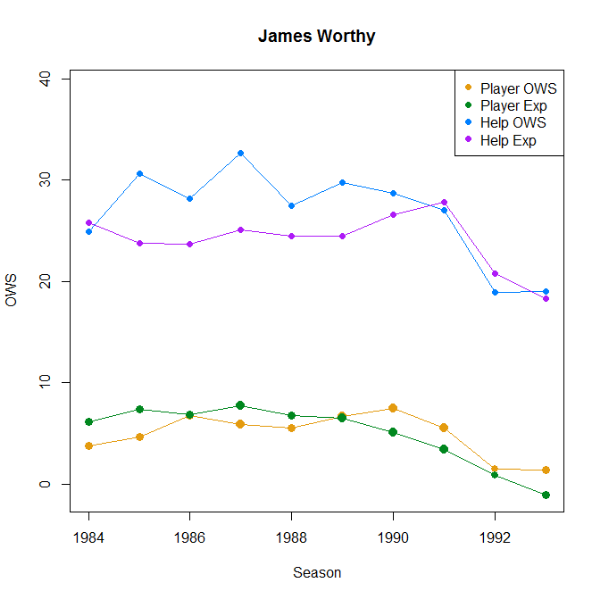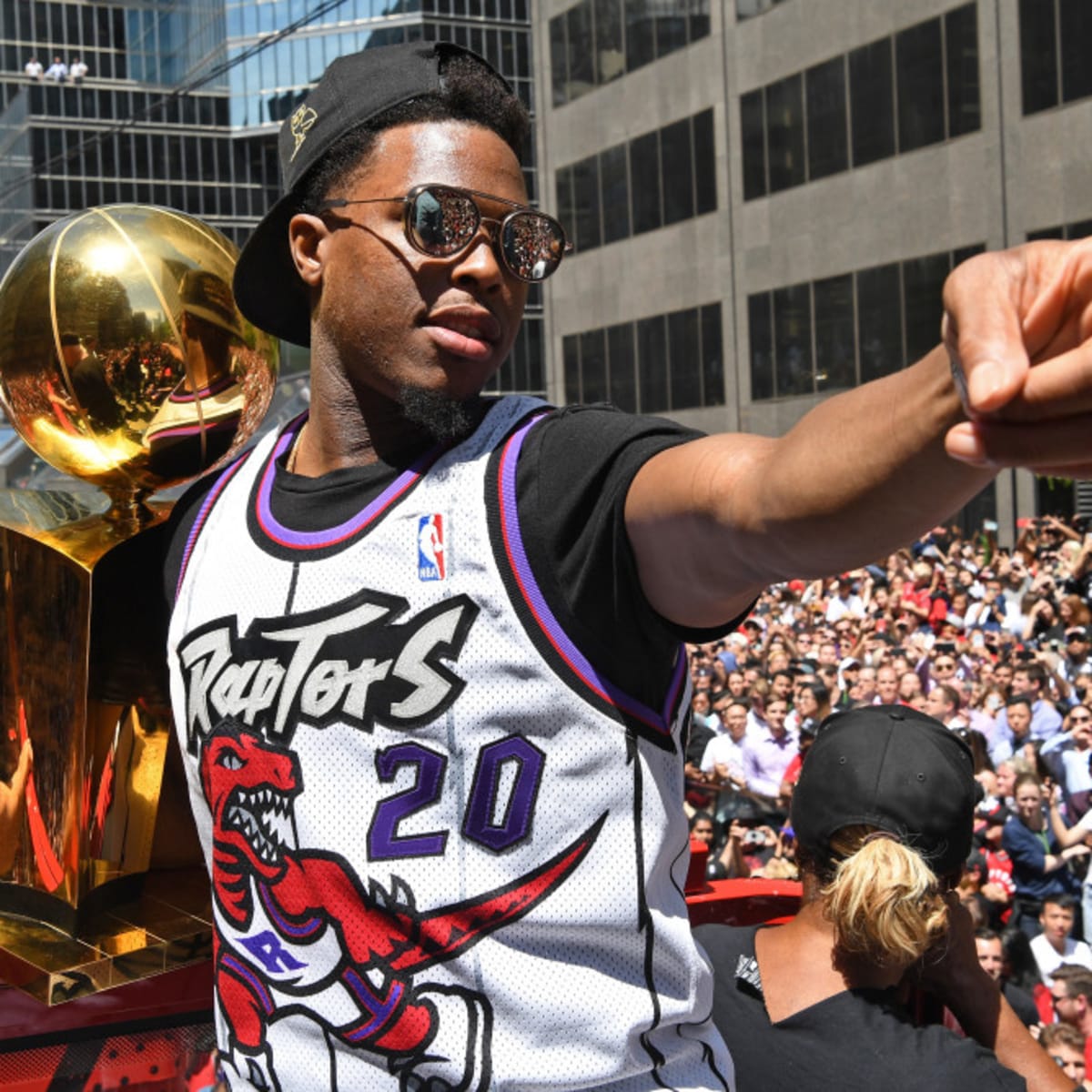Doctor MJ wrote:eminence wrote:Doctor MJ wrote:
Well, I think what we saw is that moving from Cousy to KC was a drop in offense, but a bigger gain in defense. So yes, you can argue that given their roster, Cousy as he was was still adding offensive value, it just wasn't enough offensive value to justify the defense.
If I were impressed enough with KC's overall game to consider him a serious threat for this list I'd see things a bit differently, but as is, I see KC as someone who really shouldn't have been able to be more valuable than a top tier offensive point guard, and the fact that he was probably more valuable than Cousy while Cousy still played speaks to how much Cousy's offensive impact isn't what we'd expect it to be based on the raw box score.
The overall team change with the removal of any non-Russell player is very much in the meh range for me, the Boston dynasty was pretty consistent season to season, a few games up or down on a team winning the title every season doesn't really register.
One generation successfully replaces the next, but I find it hard to pick out individual players from each one.
What's your reasoning for KC>Cousy prior to retirement? Given the PO minutes each received I think it's a very tough sell. I like you Doc, but I tend to think Red/Bill probably had a better grasp on the situation
Even if one thought '64 KC > '63 Cousy was a trivial matter to prove (I disagree), arguing '04 Rip > '03 MJ doesn't actually say much about their career values.
If I recall correctly, Bill in "Second Wind" talked about everyone on the team knowing that KC & Sam would come off the bench until Cousy & Sharman retired regardless of how good KC & Sam were, and everyone just accepting this. So no, I don't see this as a case where the contemporary people were looking at this based on an unbiased view of how valuable each guy could be. Cousy & Sharman were there first, it was their job before they became a dynasty and continued winning wasn't going to make them lose their job unless something drastic happened. Certainly there was the locker room to consider - demoting long-time starters has consequences and risks - and beyond that there was a racial dynamic to consider.
At the time when KC & Sam were on the bench and even afterward, there was a belief amongst the Black basketball community that teams at both the NCAA and NBA levels didn't want to have too many Black players starting, or even on the team, out of fear of losing fans. I would not allege that Red would knowingly sabotage his team in the name of not pissing off racists, but there's no doubt that some things were easier for him if he didn't bench Cousy or Sharman.
None of this means that KC>Cousy, but we do see the team get better after Cousy's retirement when many expected the team to get worse, and if you simply take the names out of it I think it makes it seem not so strange:
Inefficient chucker who is not good on defense leaves.
Low primacy defensive specialist enters.
Defense improves more than the offenses falls off.
Likely that the low primacy defensive specialist was a better fit for his role than the inefficient chucker was in his.
Re: Doesn't say much about career values. Sure, but Cousy was a much more capable scorer than KC even then so this isn't a situation where the relative strengths are utterly out of whack compared to career. If KC was more capable of value for the Celtics in Cousy's last season in part due to the fact that he was still shooting the volume of a great scoring threat even though he wasn't any more, then the same may well be true for any other season in which Cousy was inefficient relative to league norms. And Cousy dropped to that point at an age younger than Jones was in '62-63 (Cousy's last season).
Add to this that I don't think there's really any reason to see KC as a "late bloomer" as a basketball player. Russell was pretty clear about KC having a more sophisticated understanding of the game than himself when they first began their collaboration at USF, and the chemistry they had in those championship NCAA runs was legendary.
All this to say that while Cousy had offensive strengths KC never had, KC was probably always a better 2-man fit with Russell in terms of knowing what to do to support each other, to say nothing about their defensive coordination, and so Cousy needed those offensive strengths to paying off to maintain more capacity for value than KC.
I'm skeptical Cousy was able to do that with high volume and low efficiency.
For Sharman vs Sam I see the team politics/racial pressure angle, Sharman kept the starting spot, but Sam was basically dead even with him in total role that last season.
KC never did that with Cousy. To the very end Red rode Cousy over KC ('63 Finals 31.5 vs 18.7 mpg) in a way he didn't with Sharman with Jones.
I don't see any way around the take being either - Red knowingly made the team notably worse, or Red thought Cousy was better for the team than KC.
I'm of the opinion there's not much discernible difference between total level for '63 Cousy and '64 KC. A 1 win improvement is the most 'well they technically improved' you can get. Cousy gone and KC increasing role was certainly a fair sized change, but not the only one - namely the addition of Naulls to the bench, and various players aging up and down (mostly Satch/Hondo getting a bit more experienced imo). Unless you think those other changes were distinctly negative I find it hard to argue '64 KC was meaningfully better than '63 Cousy (I'd describe them as slightly positive overall outside of the Cousy/KC swap).
A player being in that range in his 12-13th seasons (noting they were his 12th/13th best seasons) would seem to be fairly neutral at this point on the list.















